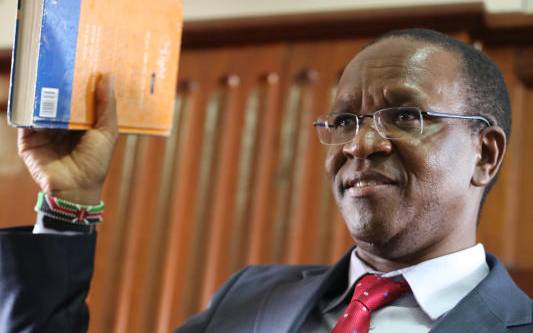×
The Standard e-Paper
Join Thousands Daily

Interior Principal Secretary Karanja Kibicho takes an oath before testifying at Milimani court yesterday. [George Njunge, Standard]
The Government yesterday admitted that information gathered during Huduma number registration will be shared with its agencies even without notifying the persons concerned.